35
This is the page for 35 Cowley Road.
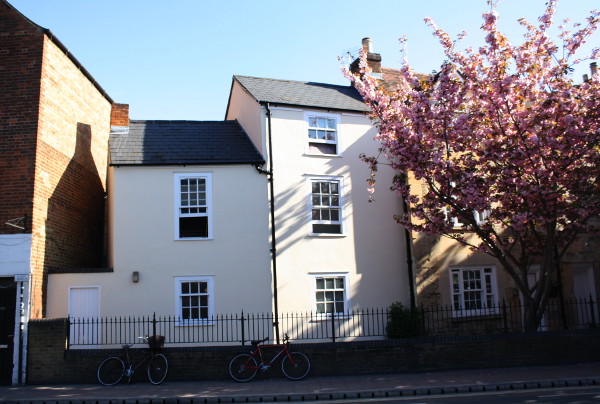
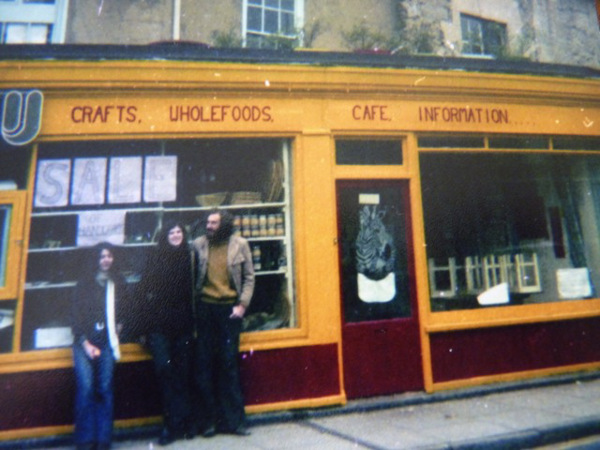
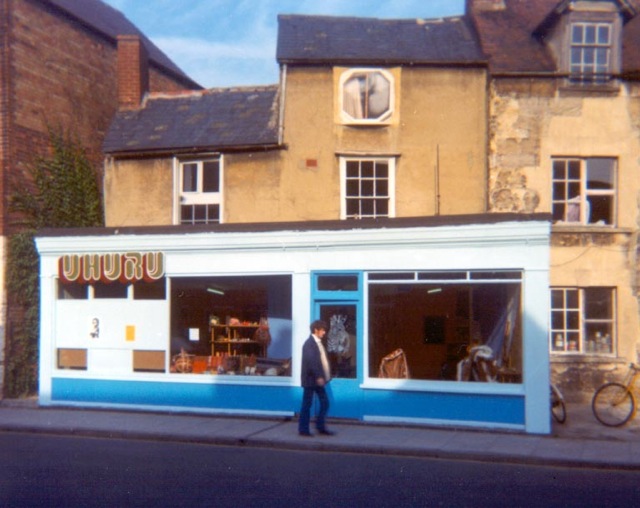
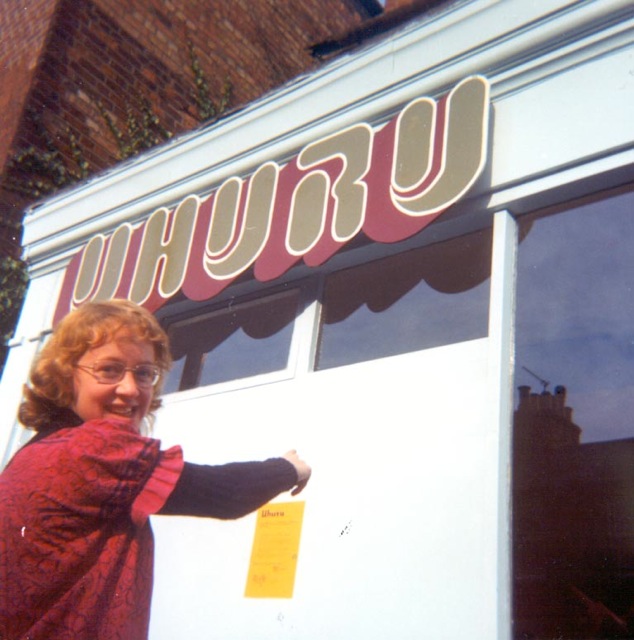

?-Present
This is now a residential property. It is one of a number of properties across the city run as supported housing by Oxfordshire Mind.
1980s
When the Uhuru wholefood business moved across the road, the building was used as a women's centre and accommodated helplines which included Rape Crisis, Lesbian Line and Oxford Friend.
As well as holding weekly women only discos, there was also a brief period of time when there was a women's only cafe, but the building by this time was becoming increasingly unsafe with rickety stairs and crumbling plaster complete with a spidery outside lavatory!
Many of the women were very politically active and organised Reclaim the Night marches and support for the Greenham Common camp, as well as producing the women's magazines, Lillith, which was sold in local newsagents. The glass front of the Women's Centre was still as seen in the photo below, and Disco attendees were not safe from late night drunken youths trying to force entry. The Women's Centre disco disbanded once Jackie Sunderland and Kim Williams started up the Early Gaze Disco in the Coop Hall (at 190 Cowley Road), now the O2 Academy.
A story from one of the women at the Women's Centre in the early 1980s:
"When the sex shop eventually opened, we were naturally unhappy with it and used to graffiti the front from time to time. One time we had some nice tangerine paint and painted some lovely slogans in the middle of the night. The next day I was cycling in to town. I paused to admire our handiwork - a masterpiece. However, I then looked down and saw the tangerine coloured footprints leading back to the Women's Centre! I had to run to my nearest friend's house and arrange a mop party as quickly as possible."
Shortly after this, in the late eighties, the building was renovated and made into a men only Mind House. Oh the irony!
A quote from Andy Panton's book: "Whole Meal Café 35 Cowley Road. Miss Oakley writes:- We opened on 5th September 1983... it is a vegetarian vegan wholefood café"[1]
1973 - 1980s
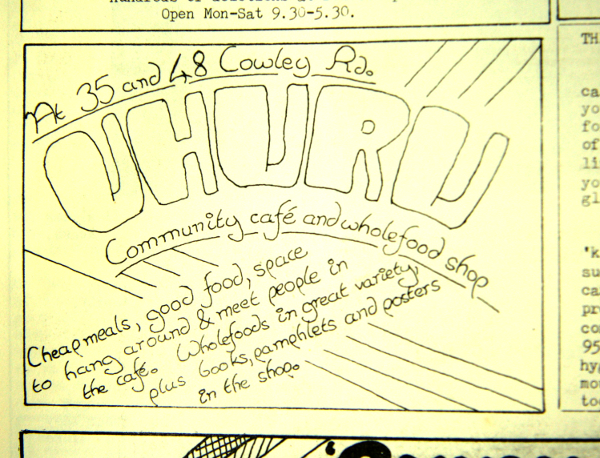
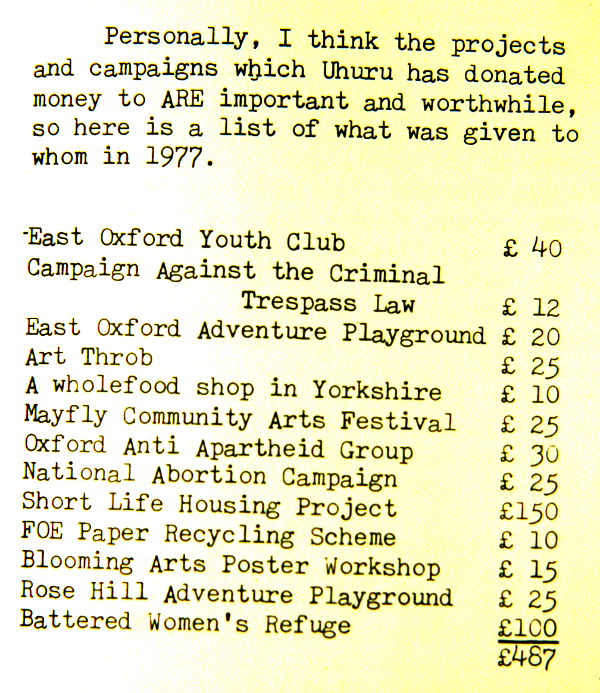
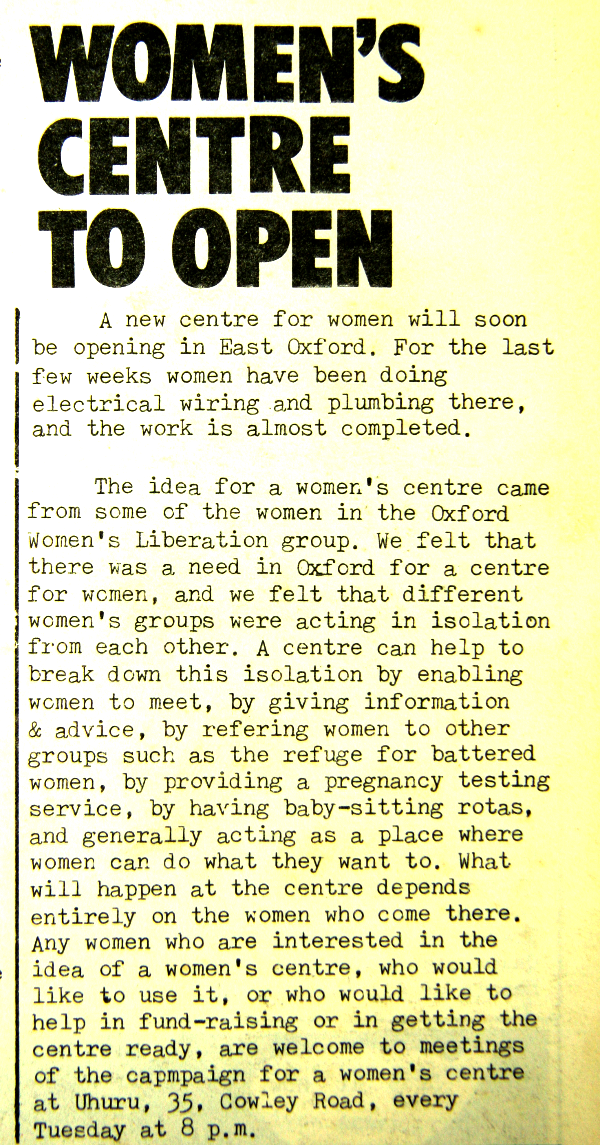
This was the Uhuru wholefoods co-op, in a shop unit now demolished.
John Clarke (on right in 1975 photo) used a windfall to found Uhuru, but gave over control to the Uhuru Collective. It was a cafe and a shop for 3rd world crafts. The wholefood sales had been a buyer's co-op in Wellington Square since the late 1960s, it was passed on to Uhuru. A photo from 1974 can be seen here.
Jane Kilpatrick took the 1975 photo and was a member of the Workers' Co-operative who owned and managed Uhuru. 2 other members of the Co-op are also in the photo, John Clark (R) and Linda nee Viney (L) now Lumb. John was one of the founding members in 1973, by 1975 there were about 6 or 8 people.
The shop sold crafts from co-operatives in the developing world (using fair trade principles) and whole foods. The cafe sold cheap and cheerful vegetarian food, and welcomed many customers other establishments would have thrown out. After hours it was used for meetings of political groups like Oxford Women’s Liberation.
The shop over the road at 48 Cowley Rd was rented from the City Council by Uhuru in 1976 so that the whole foods could be expanded and to make more room for the cafe in No 35. Uhuru started selling Campaign Coffee which they imported from a Co-operative manufacturing instant coffee in Tanzania. Uhuru also started packaging the whole foods with information about their country of origin and the conditions of the workers etc.
There is a history of the early days of Uhuru, called ‘A Working Collective’ written by members of the collective - does anyone have a copy for reference? (There are 2 copies at Oxford History Centre). Annie Skinner’s history of the Cowley Rd is also a record of that era and Uhuru’s development.
One of the many projects that met at Uhuru was the BackStreetBugle, a radical newspaper that was published from November 1977 to September 1981.
1950s - 1972
kellys Directory 1972 No 35 Absolutely Anything
Kellys Directory 1966 to 1971 No 35 blank (no business or resident shown)
Kellys Directory 1962 to 1964 Nos 33 to 37 Nu Homes furnishers
Kellys Directory 1956 to 1960 No 35 & 37 Courtenay Nurseries florists, seedsmen. greengrocers
Kellys Directory 1952 to 1954 No 35 Courtenay Nurseries florists, seedsmen, greengrocers
Before then?
Cowleyroad.org is a DIY community history - help us write it! Do you know more about this business, or remember what was at this address before? Do you have any old photographs or memories to share? Please add them to the site! Here is a how-to guide.
References
- ↑ Andy Panton, Fare Stage for Bartlemas, p 120